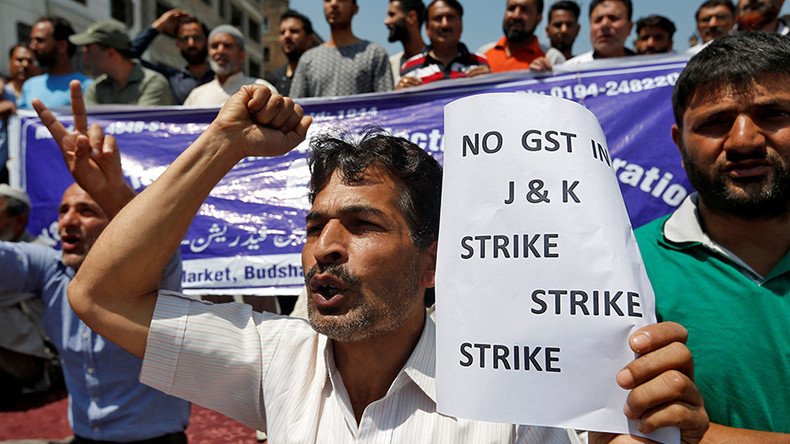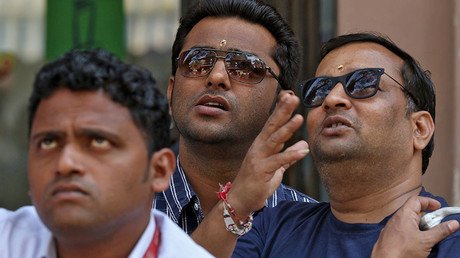India’s sweeping tax reform leads to massive protests, cinema shutdowns

Around 1,100 cinemas have been closed on Monday across the southern Indian state of Tamil Nadu as distributors and theater owners went on an indefinite strike against the 30 percent tax imposed as part of the new Goods and Services Tax (GST) system.
The introduction of the sales tax reform by Prime Minister Narendra Modi on July 1 has caused mass confusion and anger among businesses, claiming it is too big an overhaul.
Thousands of textile mills and retailers across the country have also protested the GST.
The tax reform is the biggest in the 70 years since India’s independence from Britain, replaces more than a dozen federal and state levies. It was first proposed in 2006 and is expected to transform the country’s economy into a single market.
The GST has four rates ranging from five percent to 28 percent and numerous exemptions. Businesses say they are confused by its complicated structure, with smaller enterprises saying they will get hit by higher tax rates.
Experts warn compliance will be a major challenge in a country where many entrepreneurs are not computer literate and rely on handwritten ledgers. In January businesses were ordered to adopt or upgrade computer systems to comply with the new tax regime.
"We have jumped into a river but don't know its depth," A. Subba Rao, an executive director at power firm CLP India told Reuters.
7.6% growth rate: India's economy won't lose steam for now, predicts UN study https://t.co/Qvm19S8wWt
— RT (@RT_com) January 3, 2017
Last year, the Indian government withdrew two ubiquitous currency notes (500 and 1,000 rupee notes), turning 86 percent of the cash in the country to paper.
The anti-corruption measure caused a crisis as almost all of India's transactions are in cash, and many people don't have a bank account. The move sharply hit industries like construction and tourism.













